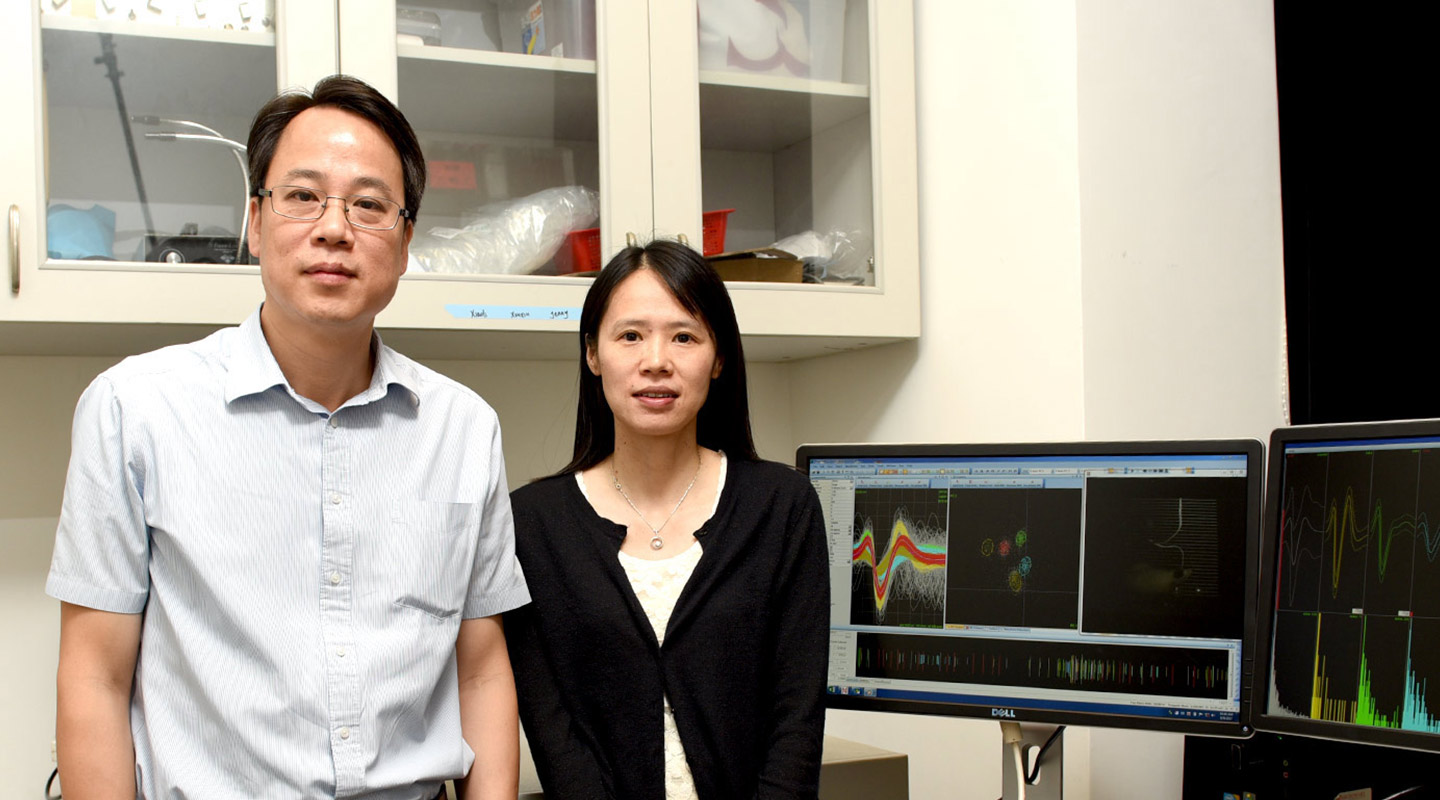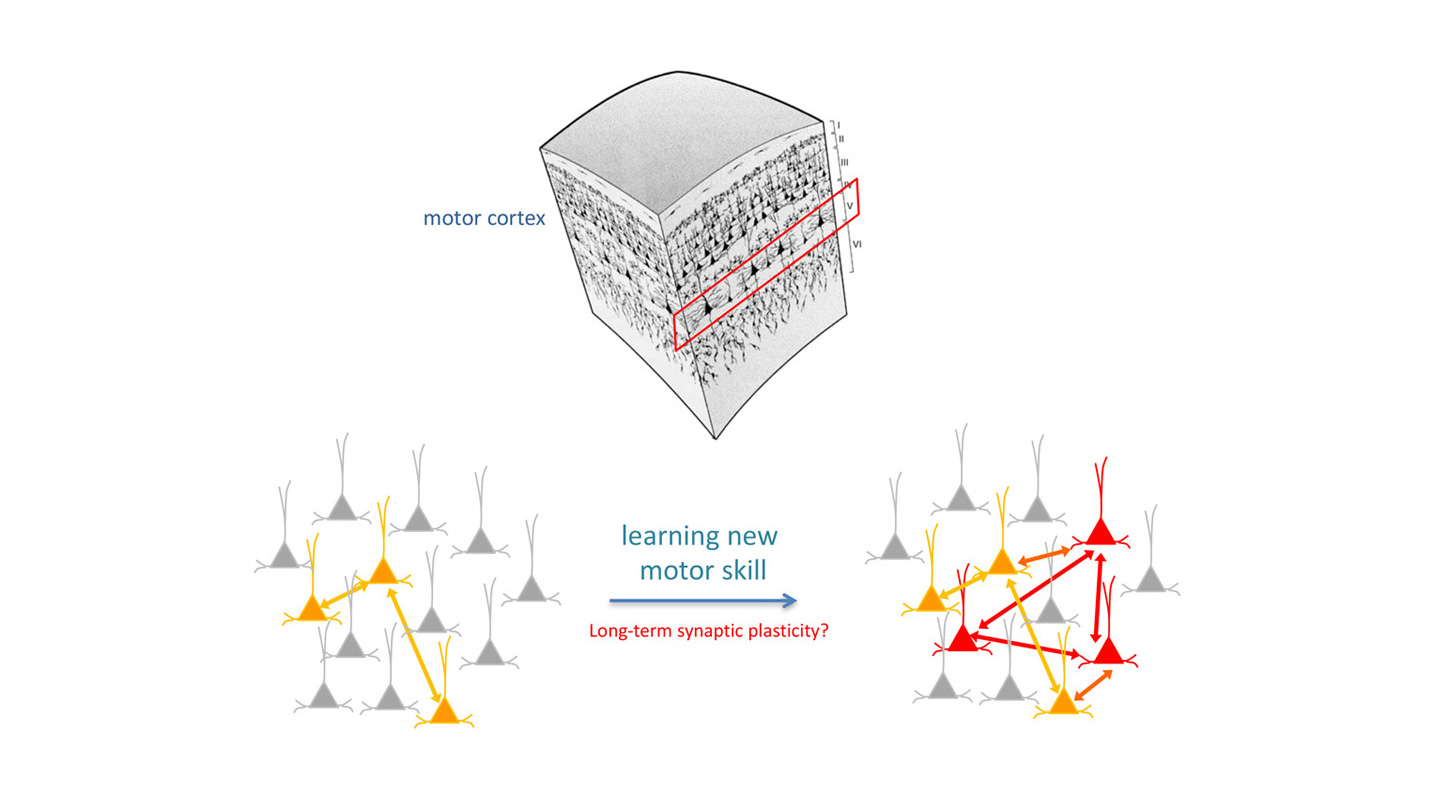Dear readers, With the launch of e-newsletter CUHK in Focus, CUHKUPDates has retired and this site will no longer be updated. To stay abreast of the University’s latest news, please go to https://focus.cuhk.edu.hk. Thank you.
Practice Makes Brain Perfect
CUHK Gerald Choa Neuroscience Centre examines the brain mechanism of behaviours

Throughout our lives we constantly acquire new motor skills, from speaking, walking, playing the piano to riding a bicycle. But individuals learn differently. Some get the knack quick. Others less so. So how do we acquire a new skill? How does the human brain enable the learning and memorizing of such skills? What effects does repetitive training have on our motor control system? And why are some everyday skills so difficult for patients of Parkinson’s disease and stroke patients to perform?
The human brain is still largely a mystery to the scientists. Prof. Yung Wing-ho, co-director of the newly established Gerald Choa Neuroscience Centre of CUHK’s Faculty of Medicine, together with his colleague Prof. Ke Ya, hopes to find the answers to how human beings learn motor skills. A motor skill is a function involving the precise movement of muscles with the intent to perform a specific act. It takes practice to acquire the skill in question, which may take a long time or not, depending on the complexity of the act itself. A piano recital, for example, may take years of practice. Professor Yung pointed out that research has showed that the learning outcome also depends on, among other things, the quality of sleep, whether it’s rewarded or not, and the approach of practice. A gradual approach is considered better than spoon-feeding in one go. But individual differences in learning a skill cannot be fully understood yet.
Research on neurons in the past has largely focused on the outer parts of the cerebral cortex. Even with MRI technique, it is no easy task to tap into the signals sent by every neuron. Professor Yung said that very few has ventured this deep into the neural activity because of the technical difficulty. But his team has made use of sophisticated neurophysiological techniques to record the signals emitted by the neurons of laboratory rats in order to understand the formation of motor memory. The researchers placed a cheese outside the cage but within the rat’s reach. To get to the cheese, the rat had to learn through repetition to use its forelimbs to get hold of the cheese.

Over a one-week period, researchers used electrodes to record the thousands of neural signals emitted per minute within the rat’s brain. They also employed cutting-edge technology to observe the activity of different neuron groups during the learning process and plot a trajectory that compares those of the neuron groups before and after learning. It was found that neurons unconnected before the cheese-acquiring skill was internalized began to emit signals in a pattern that eventually formed a network. Professor Yung said, ‘It’s like a circuit. If neurons were wires, then when all the wires are connected in a certain way, a network is formed. Dopamine, a neural conducting chemical, helps the formation of the network.’ When the researchers took away dopamine in the rat, its learning capability showed evident decline and it would ‘forget’ how it got the cheese the previous day.
Professor Yung pointed out that difficulty in acquiring a motor skill may be due to, first, genetic deficiency. Thus, children with such deficiency would find it harder to learn a new skill, especially a new language. Second, disease or injury to the neurons will hamper the formation of networks or damage existing ones, making the patient lose the original skills or the ability to learn new ones. In some Parkinson’s disease patients, the cells for manufacturing dopamine die out gradually. When 80—90% of these cells are lost, the patients will not be able to perform ordinary acts such as buttoning and walking. Their ability to learn new acts will be affected, too. Stroke patients lost their original skills and have to embark on a rehabilitation programme to regain those skills.
Professor Yung’s team see positive therapeutic implications in the findings. The prescription of dopamine to patients suffering from Parkinson’s may help them to learn new skills and re-learn lost ones. Dopamine may not be directly related to stroke, but the chemical may help to activate the relevant cells which may in turn facilitate the learning of motor skills. The findings have been published in Nature Communications.
Will the prescription enhance children’s learning? Professor Yung cautioned that excessive dopamine might over-excite the brain to undesirable effects.

This study is one of the signature projects led by the Gerald Choa Neuroscience Centre. The Centre represents a major initiative at CUHK to unite faculties sharing a common interest in neuroscience and to foster the development of neuroscience research. Its mission is to undertake a leading role in neuroscience research by making important discoveries of international excellence that benefit mankind.
Under the co-directorship of Professor Yung and Prof. Vincent Mok, the Centre currently focuses on three aspects of neuroscience, namely, the brain mechanisms of behaviours, the genetic basis of brain disorders and neurovascular biology and diseases. Professor Yung expects to see novel and significant findings in basic as well as translational neuroscience to be reported by the Centre in the coming years.
This article was originally published on CUHK Homepage in Sep 2017.